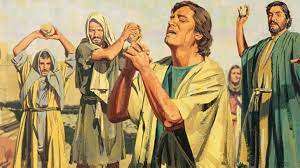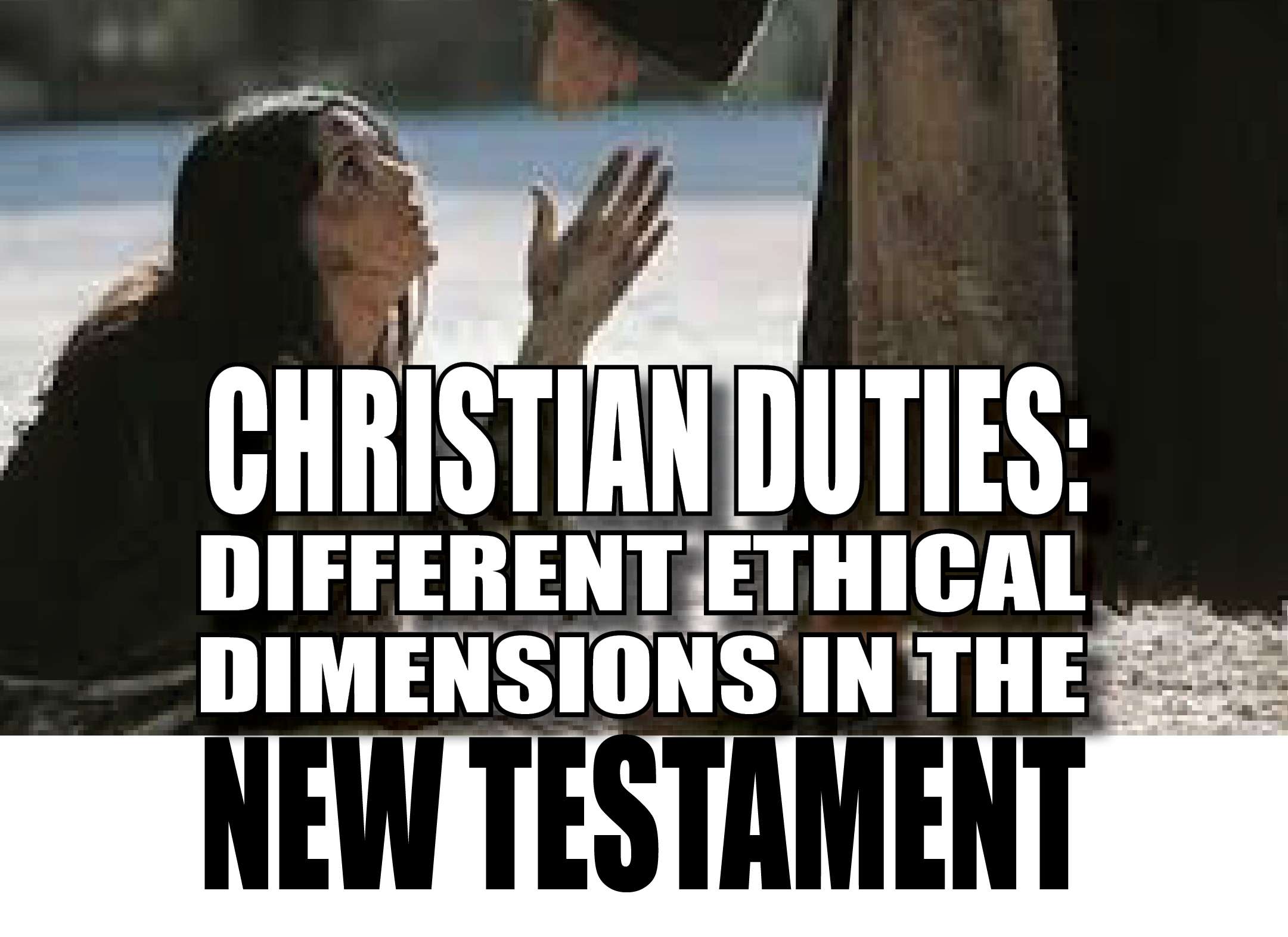

A Paradoxical Picture of Persecution: Jesus’ Perspective
Pr. Ratheesh A. P.
Human beings often have the tendency to react to unfavourable situations in their communal life. They react to each negative situation - like animals with cloves, barks, stripes etc. History reveals that Christians have passed through chains of persecution for the past centuries. Even amidst persecution Christians taught tolerance. John Knox, a student in Westminster says, “Jesus used the Cross to save the people, not sword and force.” Those who use sword and force are not the followers of Jesus. Jesus has influenced people to expound tolerance in the midst of violence.
The concept of non-violence has been rooted in different sources of tradition – and I wish to present how certain Hellenistic and Jewish sources have induced Jesus’ teaching on non-violence.
Stoicism was rooted in the Jewish culture even before the birth of Jesus. Stoic philosophy watered the soil in which the Church sprang up. Hence it is right to think that the concept of non-violence taught by Jesus had a deep connection with the Hellenistic philosophy. Though Stoicism seemed closer to Christianity as compared to all other philosophies, their teachings are quite contrary to what Jesus taught. There are two main representatives of Stoic thought who flourished in the first century - Epictetus of Hierapolis and Lucius Annaeus Seneca.
According to Seneca, non-violence is “to engage to work for the common good, to help each and all, to give aid even to the enemy when the hand is feeble with age.” Seneca insists that one should not return evil for evil. ‘But of course there is some pleasure in anger,’ you say, ‘and it is sweet to return a smart.’ Not at all; in the one case it is shameful to be outdone, in the other not to be outdone. The words ‘revenge’ and ‘retaliation’ are inhuman acts. The man who returns a smart commits merely a more probable sin.
For Epictetus, the metaphor he used for the non-violence is a stone. He says, ‘Take your stand by a stone and insult it; and what effect will you produce? If, then, a man listens like a stone, what profit is there to the person who insult?’ So when a man is insulted and feels no pain, no anger and no hindrance and he will feel freedom in every disturbance. He is confident enough that ‘Now no evil can befall me, everything is full of peace and harmless.’
Hence, having enemies was not necessarily bad. Hans Dieter Betz says, “Enemies are part of life and: he who has no enemies has no friends either. Hatred of the enemy may be a necessary motivation for self-defence.”
On the surface these teachings sounds like Christian teaching but the social ethics of Christianity seems to deserve superiority over the Stoics especially in the practice of non-violence.
It is also important to understand that Old Testament is not the source of Jesus teaching of ‘love your enemy’, but the followers of Jesus had heard a new word which guided them in the proper use of the old word which is mentioned in Lev.19:18. Various occasions in the New Testament talk about the concept of love towards one’s enemy.
Gospel of Mathew presents Jesus as the person who treats his enemies beyond rationale or incompatibility of the existed environment. There are several passages that reflect how Jesus responded towards conflicting situations with Jewish leaders. The concept of nonviolence is explicitly mentioned in Matt 5:43-48. Matthew’s use of “Love for one’s enemy” reflects the Polemical tendency towards his enemies (Matt 5:43-48). Matthew’s use of this term reflects the social situation of the Christian community. When the fellow Jewish group accepted Christianity they were excommunicated from the synagogue and were not given privilege to participate in any societal involvements. They were completely neglected, looked down and marginalized from the community. It is in this context Jesus teaches how one should respond towards opposition or persecution. By teaching non-violence Jesus shows that His community is pure, righteous and perfect where His opponents stand in opposition. A brief explanation from Matt 5:43-48 will helps us to understand Jesus attitude towards the people who face attacks for the sake of their faith.
For Matthew, the opponents are the ones who hate Jewish Christians (Matt 5:43). In the beginning of this section Matthew has two elements of which the first one is a direct citation from the law and the other is not, although he presents this latter as if it is part of the Old Testament, it is through this misinterpretation of Torah that Matthew portrays the opponents as those who hate the Christians any longer neighbours but as enemies. This strong polemic presentation reflects the situations of his own community and urges them to love their enemies as part of obeying Jesus’ commandment.
Here, Mathew presents the opponents of the Jewish Christians as the one who persecute them (v.44b). This verse expresses that Jewish Christians suffer persecution from Jewish establishments. It is precisely in persecution that Jesus’ followers are to show their love by praying for those who harm them. The religious leaders are labelled or described as persecutors in Matt 23:34.
Thus, it is through this double command (v.44) that Matthew tries to show that Jewish opponents are the persecutors of Christians. The Christians are portrayed as the victims of persecution. Matthew defends his own community that practices the command of love of one’s enemies to show their higher value of ethics which is lacking in their opponents. To conclude, Matthew’s focus on the theme of persecution in this verse is also an indication that the Matthean community is at least in the process of separation.
Matthean community presents us as the children of the Heavenly Father (v. 45). The Christians who love their enemies are identified as Sons of God. The Matthean Community is distinguished from the opponents as they love their enemies and by their participation in the activity of the Father who does good thing to all. Matthew retains a sharp distinctive language from the source: good and wicked; righteous and unrighteous in the description of God’s character. It is by this polemic language (v.45), Matthew tries to distinguish his own group as righteous; as those who love their enemies, unlike his opponents who persecute Christians.
Matthew seems to portray the picture of Christians who are asked to go beyond reciprocal love to obtain reward (vv 46-47). So Matthew has Jesus promoting a new ethics that surpasses that of the opponents’. This elevated status of the community through the commandment of enemy love (and so the higher ethic) is a differentiation of Matthean community’s distinction from the Jewish neighbours.
Matthew also presents the opponents’ inadequacy of achieving perfection (v.48). Matthew concludes his antithesis with a call to perfection. Matthew’s intention possibly is to show that his own community observes a higher ethics (perfection). The term ‘perfection’ is used first as an attribute of human beings (v.48) and then as divine attribute (v.48). In the immediate context it means loving one’s enemy, imitation of God who is impartial to both good and bad people (v.45).
They argue that for Matthew to be “perfect” means to fulfil the law through the manifestation of unrestrained love. In contrast to the Jewish understanding of perfection, which is obeying the Law, Matthew shows that Christian perfection consists of obeying Jesus’ teaching, which is to love one’s enemies. The implication is that the opponents claim to reach perfection but are incapable of achieving it. In doing so, he criticizes the opponents for lacking this qualification. Christians are perfect as they hold on to a new ethics of higher righteousness and fulfil the Torah as Jesus interprets it for them. This understanding of the law distinguishes Matthew’s group from its scribal and pharisaic opponents. It is a strong way of presenting Mathew’s message to the opponents. So the Jewish Christians are the perfect ones who love their enemies even in the midst of persecution.
In the Gospels, Jesus proclaims entirely a new way of life, i.e, the way of non-violence. Through the words and teachings of Jesus he calls Christians to have a reciprocal love towards their enemy. Mathew claims that Christians are the one who hold the higher ethical value (love your enemy) and the opponents are the one who persecute Christians. Finally, Mathew says Christians are the “perfect” community which has higher righteousness by practicing nonviolence and fulfil the law as taught by Jesus.




